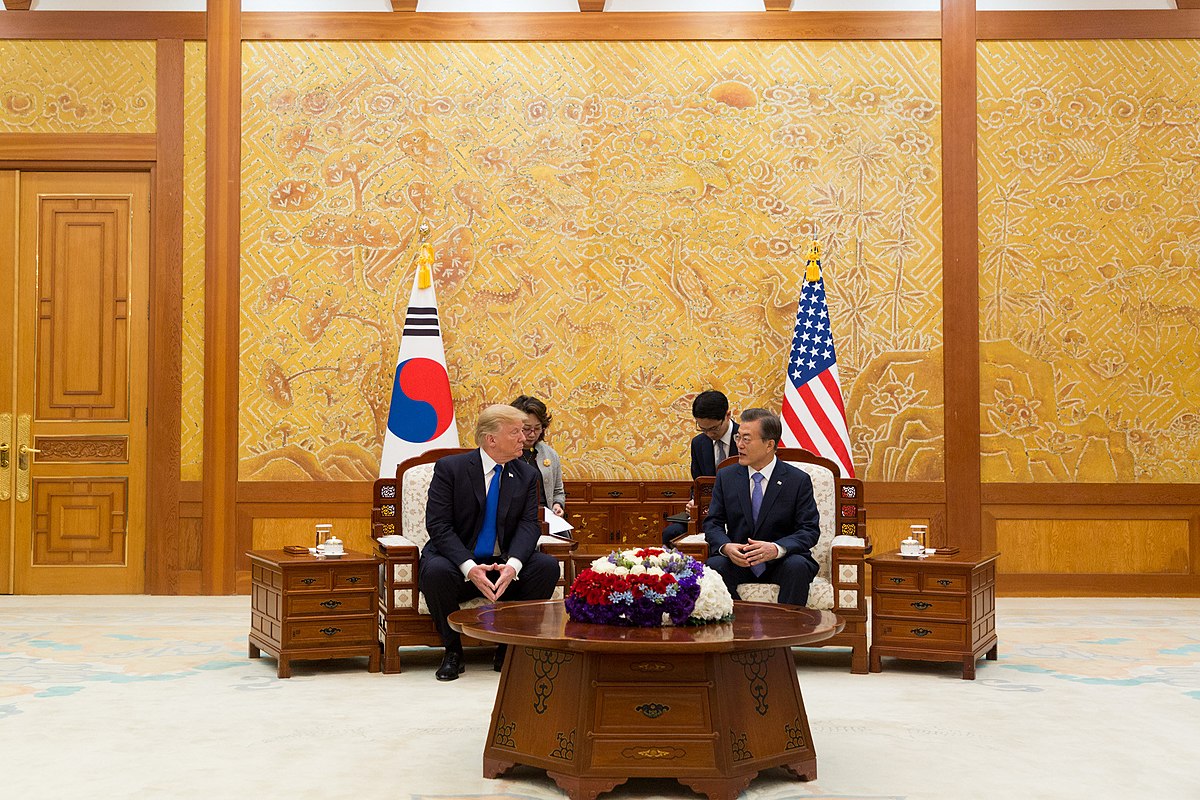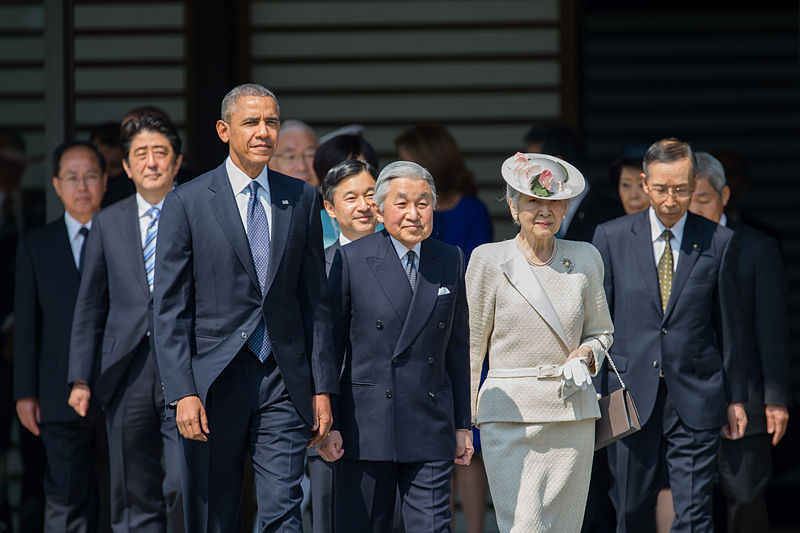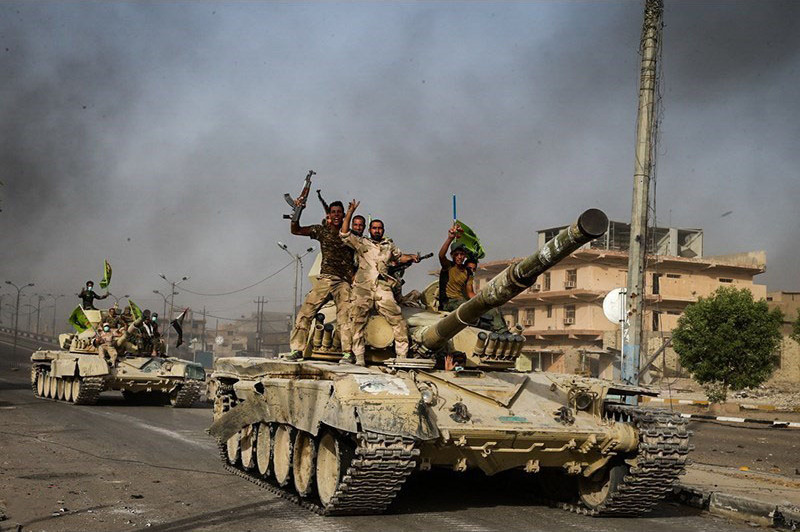Between the Han River Miracle, K-Pop, and a hundred other examples of the extraordinary development of the Republic of Korea (ROK or South Korea), it is easy to forget that millions of individuals on the Korean peninsula are living at the edge of an intense conflict that has been ongoing for the past six decades. The older generations who experienced the Cold War era, especially, have long lived in constant fear of war, and thus many perceive the intensification of military aggression from North Korea as a clear threat. Although the recent development of negotiations between the United States of America and the Democratic People’s Republic of Korea (DPRK or North Korea) is a sign of positive relations, the danger of trusting North Korea remains.
Tensions in the Asia-Pacific region have yet to witness any de-escalation, and fear of conventional warfare grips the region. Most prominently, North Korea continues to threaten regional stability by developing its nuclear and ballistic missiles, hampering any prospect of collective peace and cooperation.
To preserve stability, prosperity, and peace in the region, the presence of the United States of America has, since the end of the Second World War, been an essential factor in maintaining the status quo, particularly in Korea. As a result, Pyeongyang has actively attempted to remove the American presence on the Korean peninsula, and tilt the conventional balance of power to their favour. Although this analysis does not suggest that North Korean conventional aggression against the alliance of America-ROK-Japan is likely to be initiated, it suggests that, given the current situation, North Korea may achieve their goal of tilting the balance of power.
While it is indeed essential to preserve peace, as evident by the recent efforts of President Moon Jae-in of the Republic of Korea, South Korea’s appeasement seems to cause controversy, especially with no guarantee of peace from North Korea. The DPRK has for decades challenged the global community with the constant threat of war as a bargaining chip, and the potential deployment of a nuclear armament is a game changer. Moreover, the DPRK has engineered negotiations in the past only to offer negotiated peace with no regard for the abolishment of North Korea’s nuclear program.
For the past decades, North Korea has never been perceived as a real threat to ordinary Americans and Canadians, especially to those who had grown up in an environment of peace and prosperity. Unlike the DPRK, the United States of America has the ability to manufacture a near-infinite amount of military hardware, while having access to a modern military and economic apparatus that far surpasses its rivals. North Korea, however, relies on limited assets from the People’s Republic of China (PRC or China) and the Russian Federation (RF or Russia), but mainly depends upon domestic resources, and its already impoverished economy.
The idea of conventional deterrence, however, will be shattered once North Korea successfully develops their own intercontinental ballistic missiles (ICBM) equipped with a nuclear warhead. The might of the American war machine and the vast Pacific Ocean may no longer protect North America, as a North Korean ICBM could reach the entire continent of North America—placing every American city, neighbourhood, and home on the frontline against North Korea.
With the introduction of President Donald Trump’s blockade against North Korea, however, a strategy of exerting maximum pressure is sought to suffocate Kim Jong-un’s economic lifeline, by targeting any nation that attempts to trade with North Korea. Vice President of the United States of America Mike Pence stated on February 7th, alongside Prime Minister Shinzo Abe of Japan in Tokyo, that “…the United States of America will soon unveil the toughest and most aggressive round of economic sanctions on North Korea ever – and we will continue to isolate North Korea until it abandons its nuclear and ballistic missile program once and for all,” while urging the ROK to take a tougher stance against North Korea.
The latest sanctions by the United Nations Security Council in December of 2017, for example, were imposed in an attempt to further pressure North Korea’s external sources of funding, mainly to freeze Kim’s global assets and partly to limit imports, such as petroleum products. In addition, the resolution demands that all nations expel North Korean workers: Kuwait and Qatar, for example, expelled their North Korean workers, and Poland terminated visas in 2016, yet at least 50,000 workers are currently working in Russia and China combined.
North Korea almost immediately rejected these tighter sanctions as an “act of war,” and stressed that the U.S. must “learn to co-exist.” Although it is evident that Pyongyang is outraged and that both China and Russia have declined to strangle North Korea economically, these sanctions, both old and new, would not destroy North Korea’s already stagnant economy. However, it would “…send the unambiguous message to Pyongyang that further defiance will invite further punishments and isolation,” as stated by the U.S. ambassador to the United Nations, Nikki Haley.
Although there is a constant humanitarian concern with these sanctions, former U.S. Secretary of State Rex Tillerson argued that it is, “…a choice the regime’s making. The regime gets to decide how they allocate their available resources,” and “we are not going to take any responsibility for the fact that he [Kim Jong-un] is choosing to make his own people suffer.” Vice President Pence has also stressed that, “We will continue to apply maximum pressure to Kim regime until we see North Korea to take credible and concrete steps towards denuclearization. We will remain firm in our resolve and we will continue to stand strong until North Korea abandons its nuclear programs once and for all.”
But North Korea’s sudden participation in the Winter Olympic Games paused the escalating tensions. The South Korean government has taken multiple measures to express their good will, and willingness to engage in talks including delaying the annual joint U.S.-South Korea military exercise. This prevented the American SSN-774 class nuclear-powered attack submarine from entering the Port of Busan, and allowed Pyeongyang to make demands while benefiting from the spectacle of the Olympics, and potentially “hijacking” the message of the Olympics, as warned by Vice President Pence.
Despite recent developments and progress towards a potential Trump-Kim dialogue, there is a great degree of skepticism and concern that North Korea’s offer is simply another Trojan Horse. As hopeful as the dialogue may be, there is a great source of disillusionment to negotiate with North Korea, given that the past 30 years of diplomacy has been ineffective, and has led to the current nuclear threat. Although it is significant progress from the intense exchanges of the preceding months, there is a fear that both the ROK and America may bring themselves to welcome another negotiated, and limited, peace.
President Trump had openly expressed his interest to talk with Kim as early as his presidential campaign, and at the time criticized Hillary Clinton’s unwillingness to speak with Kim, stating “What the hell is wrong with speaking? And you know what? It’s called opening a dialogue. It’s opening a dialogue.” The President even invited Kim to America, stating in June 2016: “I wouldn’t go there, that I can tell you. If he came here, I’d accept him, but I wouldn’t give him a state dinner…We should be eating a hamburger on a conference table.”
The idea of an open dialogue between the two nations is indeed a welcome sight to the international community, as it presents the prospect of actual denuclearization and peace. Yet, the DPRK continued to develop their nuclear missile program even though millions of North Koreans died of famine and hunger in 1990s, and has to this day continued to develop an ICBM, even though millions more are suffering under the brutal regime of Kim Jong-un. Despite previous peace talks, it is important to highlight that though Kim may be an inexperienced dictator, the Kim dynasty of North Korea has exploited America for over 30 years through diplomacy, and with the illusion of denuclearization and peace.
In the end, the dialogue with Kim may be President Trump’s greatest diplomatic gamble. In order to obtain the best terms possible, President Trump’s policy must put pressure on the Kim regime, allowing the President to have an advantage at the negotiating table. With North Korea offering to talk with the Trump administration, President Trump is most likely expecting to make demands against North Korea.
As successful as the President Trump strategy may be, the ROK seems to have developed a comprehensive strategy to hinder Trump’s efforts, especially with Chung-in Moon, a special advisor to the President of South Korea for foreign affairs and national security, who is advocating for policies that are deemed contrary to US policy. With the danger of nuclearization being omnipresent, and America being especially sensitive to war weariness, President Trump expects the denuclearization of North Korea with the termination of missile tests, as he cannot sustain any backlash like the perception of defeat or loss to his already faltering administration.
To read Part II of this article, click HERE
Photo: President of the United States Donald John Trump & President of South Korea Moon Jae-in in Seoul, South Korea, November 7, 2017, by The White House from Washington, DC (Shealah Craighead) via President Trump’s Trip to Asia. Public Domain.
Disclaimer: Any views or opinions expressed in articles are solely those of the authors’ and do not necessarily represent the views of the NATO Association of Canada.




